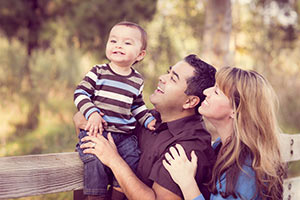ADOPTION IN
Virginia

Whether you’re considering placing a baby for adoption or hoping to adopt a child into your own forever family, an adoption agency in Virginia will be one of your best resources for support. The adoption process in Virginia can differ from other states, so working with professionals and getting all the information you can up front is in your best interest.
Adoption Near Me

Considering Placing Your Baby or Child for Adoption? You can learn more here or call an adoption counselor 1-800-236-7898.
Domestic Infant Adoptions can be completed through a Virginia adoption agency or adoption attorney. Click here for a directory of adoption service providers in Virginia.
International Adoptions must be completed through an adoption agency or adoption attorney. Find an international adoption service provider here.
Foster Care Adoptions in Virginia can be completed through the Department of Social Services (804-726-7000). Gallery of children waiting to be adopted.
Join the Virginia adoption group in our community!
Looking for more resources in your area? Check out the Adoption Directory for a listing of adoption professionals in your state.
I’m considering placing my baby or child for adoption.
Pregnant and have questions? We can help answer your questions by telling us what works best for you.
Are you pregnant and considering adoption? Do you need help getting started?
Click here and help us understand what your needs are and the preferences you have. We can help you get started.
Adoption in Virginia
By: Jennifer S. Jones
One of the first 13 original colonies, Virginia is situated in the southeast of the United States. Virginia is the home of Jamestown, the first English settlement established in 1607, and Thomas Jefferson, the father of the Declaration of Independence. From the Blue Ridge Mountains to the Chesapeake Bay, Virginia is a beautiful state to call home.
If you are facing an unplanned pregnancy in Virginia, you likely have a lot of questions. You may be planning to parent, or are contemplating terminating the pregnancy, or maybe exploring adoption plans. Unplanned pregnancies are just that: unplanned. You may be at a time in your life when you are not ready to be a parent. Or you don’t have the right partner or support system. Or you are not in a financially stable environment. Part of the decision-making process in an unplanned pregnancy is to do some research and learn what options are available to you.
If you are exploring adoption in Virginia, know that it is your and the other parent’s decision to make. Family members and friends can be supportive in helping you navigate the adoption journey, but ultimately it is your choice to place your child for adoption or not.
Know that throughout the process of researching and making an adoption plan you can change your mind at any time. A good counselor can help you explore your feelings and help you reflect on what both the short-term and long-term effects of your decision might look like. If you choose to place your child, know that doing so requires a lot of love and a lot of courage. Placing a child for adoption does not mean you do not love them. Placing a child means you have a lot of love for that child and that you have the courage to do what you believe to be best for both yourself and your child.
As you embark on the decision-making process, it is important to involve the other parent in the decision. It can be a hard conversation to have, but if you have a good relationship, the two of you should try to sit down and talk. If you do not have a good relationship, or do not feel comfortable communicating with the expectant father, your adoption agency or adoption attorney can have that conversation on your behalf.
For adoption in Virginia, there is a Birth Father Registry, so if the father is unknown, agencies and attorneys will typically start their search there. If a man wants to document himself with the registry, he may do so at any time before or within 10 days of the child’s birth. If he fails to register during this period of time, then his parental rights will be waived and he will not be notified of any adoption proceedings. Both parents’ signatures are required to consent to the adoption, but if the birth father’s parental rights have been waived then no signature is needed.
If you are considering adoption in Virginia, a good first step is to meet with adoption agencies. A good agency will share the process of adoption with you and outline your rights as an expectant parent. Agency representatives can meet to talk with you anywhere from a local coffee shop to their offices to your living room—wherever you are most comfortable. Think of your first meeting like a fact-finding mission. Ask what kind of resources are available to you as an expectant parent and inquire how they screen prospective adoptive parents.
Meeting with an agency does not guarantee you are committing to placing your baby for adoption. Rather, should you decide to parent, a good agency can provide resources to help you on that parenting journey as well.
Choosing to place your child for adoption in Virginia does not mean you have to work with an adoption agency. It is possible to pursue an independent adoption, which is an adoption that does not involve an adoption agency. In this instance, a physician, a member of the clergy, or a family friend may make an introduction to the prospective adoptive parents, or you may meet them directly.
Once a match is made, an attorney will be brought in to facilitate the adoption plan. Because adoption is the legal termination of the birth parents’ rights and the granting of parental rights to the adoptive parents, an attorney must be involved in the process regardless of whether an independent or agency adoption is pursued. Some expectant parents and prospective adoptive parents prefer to adopt independently since it can allow for more control over the process and more interactions before birth.
But working with an agency has its benefits as well. A good agency can provide access to counselors, attorneys, and prospective adoptive parents who may be difficult to find if done independently.
Whether you choose to work with an agency or pursue an independent adoption, choosing to place your child for adoption will not cost you anything. In Virginia, all legal, counseling, and medical-related expenses about the well-being of you and your child pre and postnatally will be covered by the prospective adoptive parents. Additionally, reasonable living expenses (such as rent, utilities, food, and maternity clothes) may be reimbursed along with any transportation fees related to your pregnancy and the potential placement of your child. All money paid must be recorded (which is typically done by the agency or your attorney) and disclosed to the court before the adoption can be finalized.
Aside from the decision to place your child, the next biggest decision is choosing an adoptive family for your child. If you are working with an agency, you will have access to a “database” of prospective adoptive parents who may live locally or even across the country. All prospective adoptive parents with a valid home study have completed background checks and clearances and been thoroughly vetted. During the home study process, prospective adoptive parents explain their motivations for adoption and their visions for what life will look like for their adoptive child.
As a prospective birth parent, you should think about what you want life to look like for your child as well. Do you envision your child growing up in the city, on a farm, or somewhere in between? Is it important to you that your child be in a musical family, a sports-focused family, or a family that loves theater? Do you want your child to have siblings or pets? How close do you want to live to the adoptive family? Is race, religion, or ethnicity important to you? With what type of family do you see your child?
These questions cannot be answered overnight, and a good counselor can help you work through your thoughts and feelings about the type of placement you want for your child. They will also help you explore what level of contact you want with your child and the adoptive family—open, semi-open, or closed. Open adoption has become one of the most common forms of adoption and involves all members of the adoption triad (adoptive parents, birth parents, and adoptee(s)) being in communication. Open adoption communication may come in the form of letters, phone calls, video chats, or in-person meetings. No two adoption arrangements are the same and it is up to you and the adoptive family (and later your child) to decide what level of contact feels right for each of you.
A semi-open adoption is like open adoption but often involves less frequent contact. In a semi-open adoption, in-person meetings rarely occur. With a closed adoption, there is no contact between the adoptive family and the birth parents, though at the age of 18 the adoptee may choose to contact the birth parents or vice-versa. It is important to decide what level of contact you feel comfortable with and to discuss this with the prospective adoptive parents.
Adoption in Virginia does allow for post-adoption contracts, and both the birth and adoptive parents may write out and agree on what level of post-adoption contact they wish to have. In the agreement, birth parents acknowledge that their parental rights have been terminated and the adoptive parents acknowledge that the birth parents have the right to enforce the agreed-upon level of post-adoption contact. The post-adoption contract is entered into and approved by a circuit court and will be viewed as legally binding. The contract may not be amended unless the amendment is determined to be in the best interest of the child. For an amendment to occur, all parties of the adoption triad would need to present, or be represented, in court before a decision is made.
In preparation for placing your child for adoption in Virginia, you will make a hospital plan for your delivery day. Your counselor can help you talk through your options so you can decide what is right for you. Consider who you would like in the room with you when you deliver—do you want the adoptive parents there, the birth father, or someone from your support system? Who do you want to hold the baby first? How do you want to leave the hospital: with your support system or with the adoptive family? A good agency and a good counselor will alert the hospital ahead of time, so know that whatever decision you make is okay. If you decide to change your hospital plan on the day of delivery, that is okay too.
It is hard to anticipate how you will feel on your delivery day, which is why many states do not allow immediate consent to an adoption. For adoption in Virginia, a minimum of three calendar days must pass between the birth of the child and the birth parents choosing to consent to the adoption. During this time the child may stay with either the birth parents or the prospective adoptive parents. Know that until the papers are signed, you have the legal parental right to decide what is best for your child. If you decide to parent, you have the right to do so. And if you choose to consent to the adoption of your child, you have that right as well. No one may interfere with your decision—not the prospective adoptive parents, not the agency, not your attorney, and not your family or friends. Even if you are under the age of 18, in the instance of consenting to the adoption, the state of Virginia rules that you have the legal right to be treated as an adult, and you may consent (or not) as you wish. It is your and the birth father’s decision, and yours alone.
Once you consent to the adoption, the baby will be placed with the adoptive parents and you will sign your written consent under oath in the presence of a witness. If the birth father is there, he will sign as well. That said, it is possible in Virginia for the birth father to consent to the termination of his parental rights at any time before the birth of the child. Consent becomes irrevocable seven days after it is given. After these seven days, your parental rights will be permanently terminated and the adoptive parents will be named the child’s legal guardians.
Life after placing a baby can be hard. Postnatal care is important for all women, and particularly so for someone who has gone through the process of adoption. You can expect to experience both grief and loss about your placement. Your counselor is there for you, as is a large community of women who have experienced an unwanted pregnancy and made the loving choice to place their child for adoption. Know you are not alone. Find a support system and let them support you. Take care of yourself. Be kind to yourself. And lastly, know that adoption is not a single act. It is a lifelong journey. You are not a single individual anymore, but rather a member of an adoption triad. That is a beautiful thing.
Virginia Adoption Guide
The information contained on this website is for educational purposes only and is not intended to be a substitute for professional legal advice. Always seek the advice of a licensed and qualified professional. While the content of this website is frequently updated, information changes rapidly and therefore, some information may be out of date, and/or contain inaccuracies, omissions or typographical errors.
Can I Adopt in Virginia?
Parents must be at least 18 years old to adopt. You can be single, married, or divorced. Parents will need to pass an adoption home study to become approved for adoption.
What Adoption Regulations Exist in Virginia?
Advertising: Physicians, attorneys, or members of clergy may recommend a child open for adoption but may not receive payment for the recommendation. § 63.2-1218; 63.2-1225
Relinquishment: Birth fathers may consent before birth. In direct placements, the child must be at least 3 days old before parents give their consent. Consent may be revoked before a final adoption order on the ground of fraud, or if both birth and adoptive parents mutually agree to terminate the consent. § 63.2-1202; 63.2-1233
Birth parent expenses: Payment of the following expenses is permitted: pregnancy related medical expenses, counseling for the birth mother, living expenses when the birth mother cannot work due to pregnancy, legal fees, and transportation to these services. § 63.2-1218
Post-adoption contact agreements: Contact agreements are legally enforceable in court. Parents may seek civil action and monetary damages as a result of broken contact agreements. § 63.2-1228.1; 63.2-1220.3; 63.2-1220.4
Birth father rights: Unmarried fathers wishing to receive notice of adoption proceedings may file their information with the State’s paternity registry before or up to 10 days after the child’s birth. § 63.2-1249; 63.2-1250
Finalization: The average time between TPR and adoption finalization in 2014 was 16.2 months.
Review Virginia adoption laws in detail
Is Adoption Assistance Available in Virginia?
Can I adopt a Child from another country?
It is always possible to adopt a child from another country, even if you live in the United States. Children under 18 adopted from a Hague Convention country entering the U.S. with an IH-3 visa may automatically receive U.S. citizenship.
Children adopted from a non convention country must qualify as orphans before receiving U.S. citizenship. When U.S. citizens finalize an adoption abroad, they must apply to the USCIS for an IR-3 visa for the child. An IR-3 visa classifies the child as an immigrant and may provide the child with citizenship upon arrival in the States.
Virginia gives full effect to foreign adoption decrees completed in compliance with US and foreign laws. Readoption in Virginia is an option but not a requirement. Parents wishing to receive a U.S. birth certificate for their child may submit documentation of a foreign adoption decree.
State Contacts
Gallery of children waiting to be adopted: https://adoption.com/photolisting?page=3&search_type=state&range=52
State subsidy contact person:
Ms. T.B. Jones, MSW
Adoption Program Manager
Virginia Department of Social Services
Division of Family Services
801 E. Main Street, 11th Floor
Richmond, VA 23219-2901
804-726-7537
Fax: 804-726-7499
Summary
Adoptions in Virginia can be completed through the Department of Social Services.
Parents must be at least 18 years old to adopt. You can be single, married, or divorced. Parents will need to pass an adoption home study.
Physicians, attorneys, or members of clergy may recommend a child open for adoption but may not receive payment for the recommendation.
Birth fathers may consent before birth. In direct placements, the child must be at least 3 days old before parents give their consent. Consent may be revoked before a final adoption order on the ground of fraud.
Payment of the following expenses is permitted: pregnancy related medical expenses, counseling for the birth mother, living expenses, legal fees, and transportation to these services.
Contact agreements are legally enforceable in court. Unmarried fathers wishing to receive notice of adoption proceedings may file their information with the State’s paternity registry.










